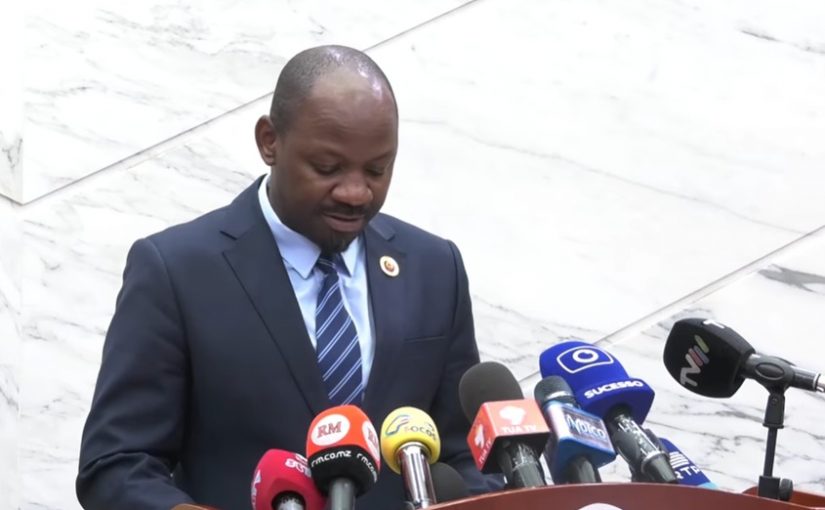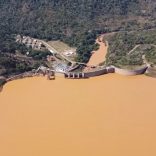Mozambique invites Russian companies to produce gas in country
Mozambique immediately suspends all mining licenses in Manica; ban to be lifted when ‘minimum conditions’ met – Watch

Screengrab: STV
The Mozambican government yesterday suspended all mining licences in the central province of Manica and created an interministerial commission to review the licensing regime, strengthen oversight, and move forward with environmental recovery measures.
“The Council of Ministers decided to immediately suspend all mining licences in the province of Manica. The suspension should be applied globally, covering licensed operators and operators working irregularly, in order to halt degradation and create an environment conducive to institutional reorganisation for sustainable operations,” said Council of Ministers spokesperson Inocêncio Impissa at the end of a Cabinet session in Maputo.
The issue at stake is environmental pollution in that province caused by mining activities, with Mozambican President Daniel Chapo having stated on 17 September that mining is causing an “environmental disaster” and admitting the possibility of a complete suspension of the activity.
This suspension of mining licences in Manica comes after the government reviewed the report by the Defence and Security Forces (FDS) operational command, which worked in Manica province from 17 to 19 July to assess the environmental situation regarding mining.
On the ground, the commission found “uncontrolled mining” by licensed operators, with mining companies operating without environmental recovery plans and without waste containment systems, in addition to violations of workers’ rights.
“Risks to national security and sovereignty were also identified, as groups of foreigners involved in illegal mining were identified, entering through informal routes and fuelling parallel networks of gold trading, extortion, and public insecurity, creating pockets of social tension,” said Impissa.
The government classified the environmental situation in Manica as “critical”, highlighting “severe pollution” of the rivers, which present “reddish, murky, and opaque waters”, resulting from the direct washing of minerals and the dumping of waste from this activity without any treatment.
“Pollution affects water supply sources, putting the livelihoods of thousands of families and the operation of health centres, schools, and municipal services at risk, and, as a consequence, can lead to disease outbreaks,” explained the Cabinet spokesperson, also warning of the threats to aquatic wildlife and reduced agricultural production due to pollution.
In light of this scenario, the government created an interministerial commission, comprising the Ministry of Defence, Ministry of Mineral Resources and Energy, Ministry of the Interior, Ministry of Foreign Affairs and Cooperation, Ministry of Finance, Ministry of Economy, Ministry of Agriculture, Environment and Fisheries, Ministry of Health, Ministry of Justice, and the Ministry of Labour, Gender, and Social Action.
The commission’s mission is to review the licensing regime, strengthen oversight, define authorised zones, and create effective accountability mechanisms, as well as establish and implement an environmental recovery plan with the active participation of violators, local authorities, the public, and other relevant entities,” said the government spokesperson.
Impissa stated that the suspension of mining licences in Manica province will only be lifted when the “minimum conditions” for resuming activity are created.
The governor of Manica province said on 10 September that the activities of all mining companies in the region would be suspended indefinitely to safeguard public health and “reorganise” the riverbeds.
“Human life comes first; public health is at stake. That’s why we have to temporarily suspend operations,” said Governor Francisca Tomás.
In August, Mozambican authorities announced that they had fined six more mining companies for pollution, bringing the total number of companies penalised for environmental crimes in Manica province to eleven.
The President of Mozambique had already announced in May the suspension of the activities of five mining companies in Manica province for environmental crimes and pollution.
Chapo warned at the time that river pollution hinders agricultural activity, even leading to the deaths of animals and people in Manica province.












Leave a Reply
Be the First to Comment!
You must be logged in to post a comment.
You must be logged in to post a comment.